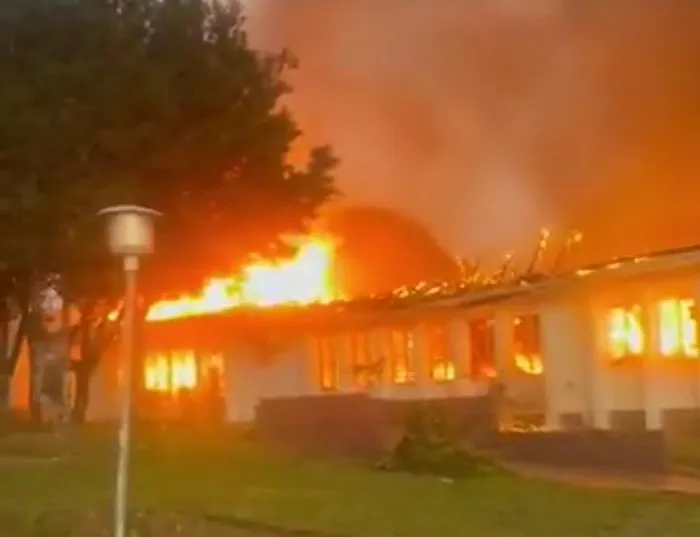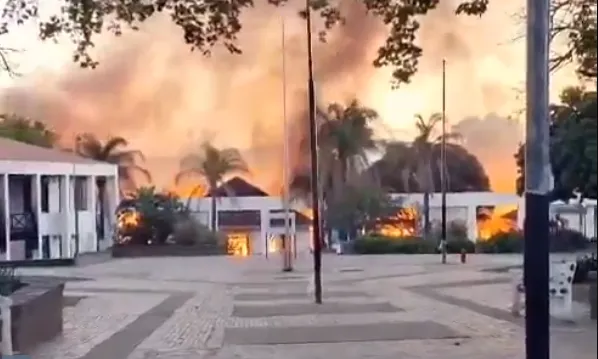
Protesting students at the University of Fort Hare set fire to four buildings this week. Eight people have been arrested.
Image: File
UNIVERSITIES of South Africa (USAf) has strongly condemned the devastating arson attacks at the University of Fort Hare’s (UFH) Alice campus.
Four key buildings, including the Main Administration building, the Student Affairs building, the Agriculture building and a newly completed campus clinic administration block were deliberately set alight during this week’s student protests.
The fires mark one of the most violent and destructive episodes in recent campus unrest.
USAf has labelled the acts criminal and a direct attack on education, transformation, and social progress.
Mateboho Green, Manager of Corporate Communications at USAf in a statement said the Board of Directors asserts that no level of students’ emotional distress or dissatisfaction, however deeply felt, can ever justify the torching of university infrastructure.
"The destruction of the four buildings, developed through significant investment to advance young people, constitutes an act of self-sabotage: selfish, short-sighted, and deeply harmful to the very communities they were built to serve.
"It reflects a troubling disregard for the fundamental role of education as a catalyst for individual empowerment and social progress," read the statement by Green.
The Board stated that education has always been a lifeline for those striving to overcome historical injustices and systemic marginalisation.
“Attacking institutions of higher learning undermines the very foundation upon which long-term social transformation, economic mobility, and equity are built. This act of arson is not merely vandalism—it demonstrates an ill intent to erase the liberation project that the University of Fort Hare represents,” they added.

Universities of South Africa have strongly condemned the arson attack by protesting students at Fort Hare University this week.
Image: File
Professor Francis Petersen, Chairperson of the USAf Board, said while differences of opinion were natural in any organisational setting, the only legitimate and constructive recourse was peaceful dialogue and principled engagement.
“Especially within institutions of higher learning,” said Prof Petersen, “the exchange of ideas must be the cornerstone of leadership and conflict resolution. Violence has no place in our universities.
“While we all feel the pain of this loss, the consequences of this heinous act will hit the UFH students, alumni, senior management and administrators the hardest. It will take years to recover from this devastation, and therefore, one must ask: who does this atrocious act ultimately benefit?”
He called for the University of Fort Hare to identify the perpetrators so that the law can take its course.
Prof Petersen urged for the unrest to be contained and peace and stability restored at the Alice campus, so that teaching and learning could resume in time to salvage the remainder of the academic year.
Related Topics: